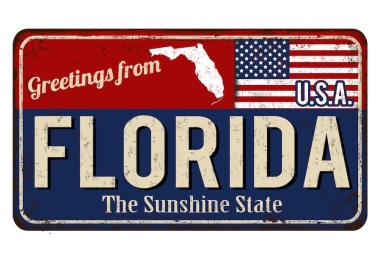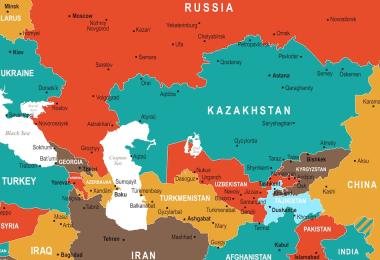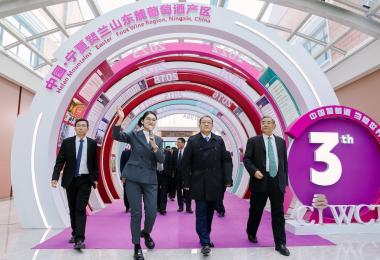Fragmentation and regionalisation are such prominent features of France’s wine sector that views on who is actually who vary not only from one part of the country to the next, but from appellation to appellation and the corner of one vineyard to another. Threats however tend to unify, hence the first name on the list is that of M. le President François Hollande.
The president’s Cancer Plan 2014, due to be passed later this year, includes a renewed attempt to make writing about wine on the Internet illegal. The move would seem to put many wine professionals in the same boat as those who voted for Hollande on the basis he was better than previous president, Nicolas Sarkozy, but then found out he wasn’t. In this case, while Sarkozy was famous for preferring Coke to wine, he never actually sought to ban it from the Web. Be warned.
Seeking to mitigate the government’s latest proposals are Audrey Bourolleau and Joël Forgeau, who last year launched a high-profile campaign against an earlier government attempt to ban wine from the web. The campaign was called “Ce qui va vraiment saouler les Français”, which can be translated either as “What will really annoy the French”, or, “What will really make the French drunk,” thanks to the double meaning of ‘saouler’. Bourolleau and Forgeau head up an organisation which they say represents 500,000 French wine professionals, called Vin et Société (Wine and Society).
The buyers
Moving to the trade, a name that’s guaranteed to head up any list of wine buyers is Didier Thibaud, director of Maison Johanès Boubée, formerly known as Prodis and owned by supermarket conglomerate Carrefour. The company is known as one of the biggest single wine buyers in France, turning over a reported €685m in 2012. The figures are hard to confirm however, as M. Thibaud did not return calls. Although wine merchants in France tend to turn up their nose at the super/hypermarket and hard discount trade - accusing them among other things of using wine as a loss leader – these outlets account for almost 84% of wine sales, according to figures from market researchers Kantar Media.
Moving from bricks to clicks, the name to drop here would be Emmanuel Imbert, head of wine sales for online “flash” retailers Vente Privée, now one of the leading sales sites in Europe. Founded in 2006, the company offers limited discount sales on a range of goods from fashion to travel and wine.
Online, auctions and finance
Switching gears and moving into the more rarefied world of auctions – but staying online - Angélique de Lencquesaing is one of the highest profile women in France’s male-dominated wine trade. In 2000 de Lencquesaing founded online wine trading platform iDealwine, with Cyrille Jomand and Lionel Cuenca, and began running the country’s first online wine auctions. She also writes articles and can be heard discussing wine investments on the radio.
Staying in the auction sector, the name that’s often mentioned alongside Angélique’s is Laurie Matheson, one of France’s most respected wine evaluations experts. Matheson was born in France to Scottish parents and has dual nationality. She currently works at France’s third-biggest auction house (after Christie’s and Sotheby’s), Artcurial, has written two books, and is the go-to expert for old wine assessments.
For day-to-day banking needs, Crédit Agricole and the Caisse d’Epargne are both well established in the wine sector – Caisse d’Epargne even offers a special viticultural service called “Espace Viticulture” in many parts of France.
For larger vineyard property trades in the €5m to €250m category, however, the man to call would be Jean-Luc Coupet at Wine Bankers, a boutique service for viticultural mergers and acquisitions.
Marketing
In terms of winemaker marketing coups, the name that crops up continually is that of Marc Perrin, manager of the Rhône Valley- based, family wine company, Perrin & Fils. Perrin, whose vineyards are all organic, recently partnered with actors Angelina Jolie and Brad Pitt to produce their first wine, the organic Miraval’s Cotes de Provence Rosé 2012. The partnership won not only international headlines for the rosé sector, but the respect of critics.
Critical opinion
In the hallowed halls of French wine journalism there are blogs, reviews and the usual gaggle of critics. However, two names stand out, firstly that of Jacques Dupont, the first wine writer to be hired by a mainstream news publication, weekly magazine Le Point. Since 1991 he has guided faithful readers through the maze of what to buy, and has written a book. The second name is Michel Bettane, esteemed French critic who, with Thierry Desseauve, writes the best known guide to French wines, called, unsurprisingly: Le Guide des Vins de France.
The producers
On the production there is, first and foremost, the current president of the Confederation of Wine Cooperatives, Boris Calmette. Often overlooked, France’s wine co-operatives are responsible for about 50% of national production. In 2012 the confederation produced 17.4m L (about 23m bottles) and turned over just under €6bn. Included in the list of Federation members is one of France’s best-known Champagne brands, which leads to another name, that of its eponymous creator, Nicolas Feuillatte. An upstart in the very traditional world of champagne, Feuillatte has become, in less than 35 years, one of France’s bestselling Champagnes after Moët & Chandon and Veuve Clicquot, respectively.
In terms of individual producers there are any number of well known and deeply respected men and women all over France. Those listed below are but a smattering of the most prominent.
Starting in Burgundy, given that the Chinese love it so, one name that has featured prominently over the last few years is that of Laurent Ponsot, owner and manager of Burgundy’s Domaine Ponsot. He is famous for both his wines and his sustained fiveyear campaign to help track down the now convicted Indonesian wine-fraudster Rudy Kurniawan. Asked why he did it, Ponsot said he could not bear to have such wines, with thousands of years of history behind them, sullied for money.
On both a national and international level another oft-cited Burgundian name is Jean-Charles Boisset, owner of not only the Burgundy-based Boisset Group – the biggest producer in the region and the third-biggest wine company in France with holdings in Burgundy, Beaujolais and the Rhône Valley – he also runs the Boisset Family Estates in the US and is connected by marriage to America’s largest winery, E & J Gallo, via his wife, Gina Gallo. He is also – it seems - the only person in Burgundy to be making vodka.
Staying in Burgundy, but at the other end of the scale, at least in volume terms, is Aubert de Villaine, co-owner of Domaine de la Romanée-Conti and the man currently spearheading the initiative to have Burgundy classified as a UNESCO world heritage site. Equally well known is de Villaine’s former DRC partner, Marcelle Bize-Leroy. Although credited with turning DRC into what it is today, she is now better known for her wines and her belief in biodynamic farming – both her vineyards, Domaine d’Auvenay and Domaine Leroy are 100% biodynamic. Her yields are described as “heroically low” and her wines “breathtaking”.
Moving to the Rhône Valley, Michel Chapoutier is known for innovations that include braille labels, biodynamic farming methods and lightweight bottles, and either later this year or early next, he is due to launch a Champagne. Additionally there are unconfirmed suggestions that alongside his operations in Alsace, Languedoc-Roussillon, Portugal and Australia, he might add a UK vineyard.
Equally respected in the Rhône Valley are the Guigal Family. Best described by one UK wine merchant as “capable of producing millions of bottles and still getting 100-point Parker scores” - meaning, in essence, that they are as famous for their so-called ‘La La’ wines – a nickname for top-end wines such as La Landonne, La Turque and La Mouline that cost about €400.00 per bottle – as they are for their entry-level offers starting at about €30.00.
In Bordeaux, the names any wine amateur should be able to reel off with confidence would naturally include the owners of the five first growths and other top chateaux, as well as some of France’s best-known wine consultants – including, for the record, Denis Dubourdieu, Michel Rolland, Eric Boissenot and Stéphane Derenoncourt. Other Bordeaux ‘names’ would include Pierre Castel, president of the Castel Group, France’s biggest wine company, turning over €1.1bn last year ,and his nephew (although Paris-based) Alain Castel, who runs the Nicolas wine shop chain with outlets in France, the UK and Belgium. Speaking of the Castels inevitably invokes the name of their greatest rival for France’s biggest producer, the owner of Les Grands Chais de France, Joseph Helfrich. Based in northern France, Alsace, the company had a turnover of around €850m in 2012, and much of that is thanks to his J. P. Chenet brand, the world’s bestselling French-branded varietal wine. It’s the one with the bent neck.
Back to Bordeaux and a man who also started out in the branded wine world with the high-volume, low-cost Malesan, the one and only, Bernard Magrez, president and director of the Magrez Group. Having sold Malesan to the Castel group, Margrez moved on to running four classified growths, and vineyard projects in the US, Chile, Uruguay, Argentina, Portugal and Morocco. Earlier this year, ever in the avant-garde, Magrez told reporters he was planning to use drones for measuring various vineyard elements, including plant damage, disease, grape ripeness and drainage contours.
On a different level, another Bordeaux name to be noted is that of Alfred Tesseron, the first grand cru classé owner to have his estate, Château Pontet-Canet, certified 100% biodynamic. As well as installing a team of horses to plough between the vines – a move that has been much replicated, sharply boosting Bordeaux’s equine population – he recently announced Pontet-Canet would use clay amphorae for wine storage. The aim is to reduce the preponderance of wood – which he calls ‘make-up’ – and allow the fruit to shine through.
In Beaujolais the name Georges Duboeuf, the man who popularised Beaujolais Nouveau, cannot be ignored. Duboeuf says the key to his success was both raising the quality of the young wine and rendering the opening of the ‘first’ Beaujolais Nouveau a ceremonious, restaurant event. It remains a long-standing marketing success, with global shipments from the Duboeuf vineyards totalling 5.2m bottles in 2013, with 75% exported and 15% sold domestically.
Other producers making a name for themselves in Beaujolais, but for very different reasons, include Mathieu Lapierre, son of the late Marcel Lapierre, Guy Breton, Jean-Paul Thévenet and Jean and Agnès Foillard. As a group they are described as ‘serious’ winemakers who have embraced the philosophy of ‘natural’ wine making – which is seen somewhat as a counterpoint to the wide commercialisation of what’s felt to be a “one-dimensional” Beaujolais Nouveau style. Natural winemaking shuns synthetic herbicides, pesticides and the use of sulphur dioxide, while using grapes from naturally low-yielding older vines.
Finally, a tip for forward-looking wine buyers. There is speculation that investing, for both pleasure and profit, in Languedoc-Roussillon rather than Bordeaux might be the way to go. Names cited as worth watching include Isabelle and Mathieu Champart at Mas Champart, Jérémie Depierre and consultant oenologist Claude Gros at La Pèira, Olivier Jullien at Mas Jullien and Claude and Isabel Fonquerle at L’Oustal Blanc.
Also cited as one of the area’s more dynamic winemakers, although on a slightly larger scale than those just mentioned, is Gerard Bertrand, who, among other things, can be credited for bringing a steady supply of both organic and natural wines to supermarkets.








